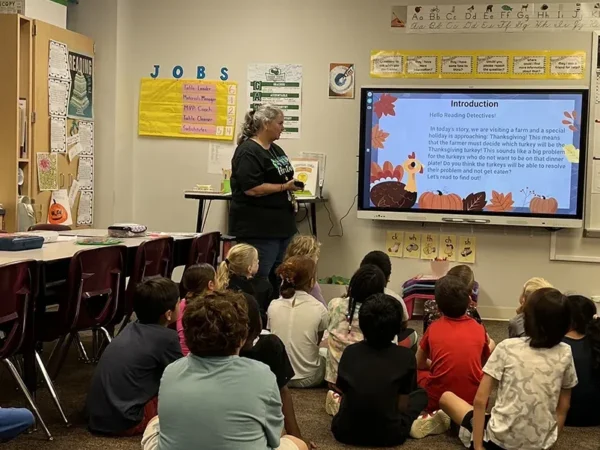Supporting and Improving Urban Education Programs in Houston
It’s a fact:
• more than one-third of America’s fourth graders read at levels so low they cannot complete their schoolwork successfully.
• academic achievement by 8th grade is one of the largest predictors of college readiness.
National Early Literacy Panel, Executive Office of the President report on Increasing College Opportunity for Low-Income Students
With help from the College of Education and Human Development, the United Way of Greater Houston (UWGH) is creating and supporting opportunities for students in urban areas like Houston and across the nation.
Reaching more than 350,000 students throughout the city, the UWGH urban education initiative is ambitious to say the least. The UWGH education initiative brings together more than 30 non-profit agencies across Houston to deliver resources to students who need them.
These programs include providing reading enrichment during the school year and a space for students to stay engaged during the long summer months. Kindergarten readiness programs provide assistance to children who haven’t attended pre-school while parenting programs provide learning tools for families to help themselves.
With help from researchers at the Education Research Center (ERC), the programs are gaining insight into not only how to make their outreach programs more effective, but also how to reach more students.
Researchers from the ERC were tasked with helping explore how an undertaking of massive size measures success when tackling an issue as complex as urban education in one of the fastest growing cities in the nation. During the time since the partnership began in 2012, ERC researchers have brought to the table subject area expertise and a sharpened sense for what actionable data looks like.
“Our initial work has improved the quality of many of the programs,” says Dr. Hersh Waxman, professor and co-principal investigator on the project. Drs. Yolanda Padrón, Kayla Rollins and Susana Franco-Fuenmayor are also co-principal investigators on the project.
In what Dr. Waxman calls “a massive undertaking,” the ERC developed a data warehouse to collect academic outcome data for children involved in the UWGH community agency’s programs. Ultimately, the goal is to determine whether involvement in the programs – whether during elementary, middle or high school – increases the likelihood that students will attend college and have generally more successful lives.
So far, the researchers’ observation of the programs has revealed a number of areas for improvement that UWGH has been working hard to address including data that suggested less than 1% of students were involved in more than one agency program.
“There’s been collaboration between the agencies that has never occurred before,” said Dr. Waxman. “For example, during the summer learning programs, you have several agencies that are collaborating to develop a stronger program. That never occurred until these last two years.”
“So now they’re able to bring their services together,” added Dr. Rollins. “One might have the transportation for students, the other might have the facilities, the instructors or the curriculum.”
Entering into Year 4 of the evaluation, the ERC will work with UWGH staff to design and implement the evaluation of the Education Initiative and report on its success. The team will analyze academic achievement and socio-emotional data for students involved in UWGH programs at school and community agencies involved in the the initiative.
“This is an exciting project for us,” remarks Dr. Waxman. “We developed partnerships with several large urban school districts and non-profit agencies such as the Houston Area Urban League, Boys & Girls Clubs, YMCA, Children’s Museum of Houston and Project GRAD.”
“We are all strongly committed to improving students’ academic achievement and socio-emotional outcomes and anticipate that some of the promising practices emerging from this initiative will be diffused and refined by other urban districts.”
A CORNERSTONE OF HEALTHY CITIES IS A VIBRANT SCHOOL SYSTEM.
Good schools attract businesses and residents and produce students who are prepared to be successful in work and in human relationships.
Since 1993, The Houston Endowment has supported the College of Education and Human Development in the hopes of developing and retaining exceptional teachers in inner-city schools. Over the years, student scholarships and two endowed faculty chairs have been established to help meet this goal.
So far the endowed scholarship fund has provided 276 scholarships for students at Texas A&M committed to teaching in Harris or surrounding counties.
For media inquiries, contact our Media Relations Coordinator, Ashley Green.
Fundraising
To learn more about how you can assist in fundraising, contact Amy Hurley, Director of Development ahurley@txamfoundation.com or 979-847-9455












